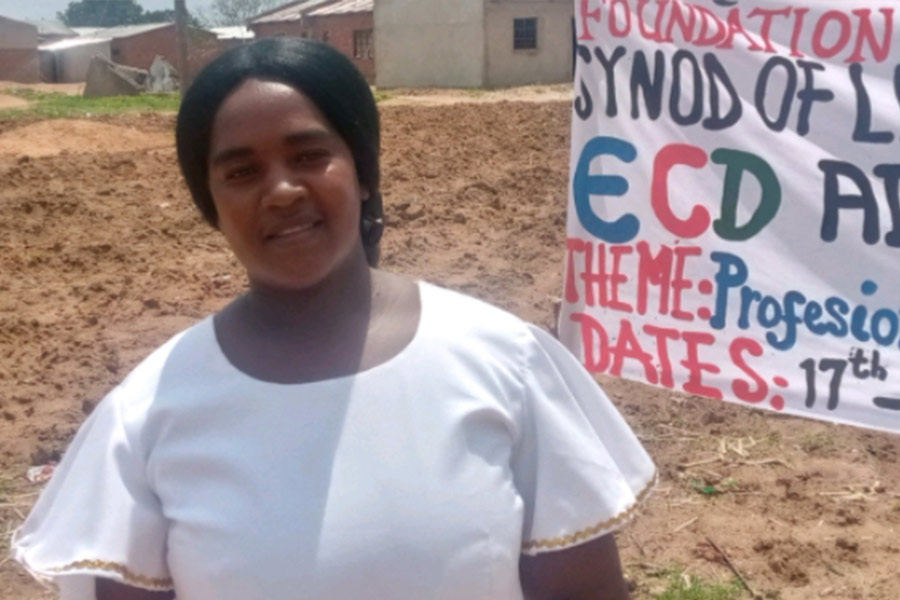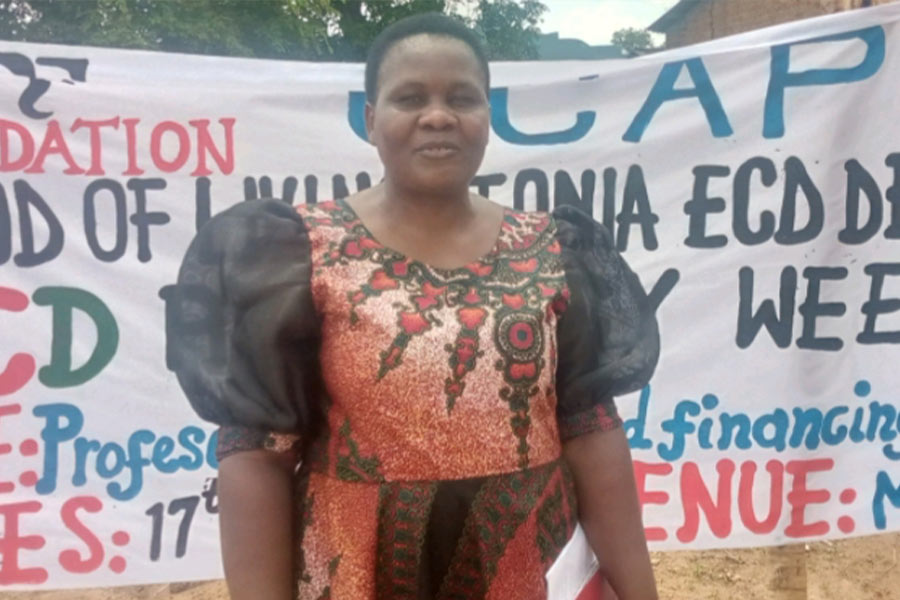ZODIAK ONLINE
Sect. 5, P/Bag 312
Lilongwe, Malawi

MZIMBA, Malawi — For more than a decade, Rhoda Malinga has devoted her time, without pay or incentive, to teaching children at the Edingeni Community Based Child Care Center (CBCC) here.
Malinga, who serves as the head of caregivers at the facility, is driven purely by passion, but she believes it's time the government recognized her contribution to shaping the country's future leaders.
"I have been doing this for over 10 years without pay or any incentive, but it's the love I have for children that keeps me going," Malinga told Zodiak Online.
"Yes, I would be very happy if at least I would be receiving something for my work; imagine this is the time for farming, and instead of going to work like others are doing in their farms, I am teaching children. So, a little something would motivate me further."
Malinga’s dedication highlights a systemic crisis: Malawi’s Early Childhood Development (ECD) program is facing a severe setback due to inadequate infrastructure, insufficient resources, and, most critically, a shortage of motivated and qualified personnel.

Lack of Investment
The lack of financial incentives, such as a monthly honorarium, is directly contributing to high turnover. Malinga notes that some of her trained caregiver friends have already dropped out because they feel their work is undervalued.
This scenario stems from a lack of adequate investment across the ECD sector, including infrastructure and inadequate human resource.
Many child care centers lack basic infrastructure, such as classrooms, sanitation facilities, and playgrounds. This affects the quality of education and creates environments not conducive to learning.
The lack of proper training and support leads to high turnover and a shortage of qualified teachers for the toddlers.
The situation is particularly acute in Mzimba District, where the District Social Welfare Officer at the Mmbelwa District Council, Benard Nangwale, reports that over 60 percent of learning centers are not permanent structures, negatively impacting service delivery.
District statistics show that Mzimba has a total of 844 CBCCs, accommodating 34,276. However, there are only 3,646 caregivers, of which 2,516 are untrained. Further, only 63 receive government stipend.
Advocates Decry Meager Budget Allocation
The lack of financial commitment from the government is a central grievance for stakeholders.

Caroline Kachilika, Programs Manager for the CCAP Synod of Livingstonia Early Childhood Development department, attested that quality ECD services are being crippled by the low government budget allocation.
"There is very low allocation to the budget for the Ministry of Gender, which looks at early childhood development," Kachilika stated. "For instance, we lobbied for an allocation of K36 billion but it has only been given K600 million. So, it's a big challenge, worse still, our caregivers are not being paid, hence they are not motivated enough."
To push for tangible change, Kachilika’s department is advocating for the construction of two model CBCCs per Constituency using the Constituency Development Fund (CDF), which is now pegged at K5 billion.
"We believe this will translate into a number of early childhood development centers in the districts by the end of the five-year term to the next elections," she added.
Local Councils Vow to Prioritize ECD
Despite the funding challenges, local leadership is signaling a new commitment to the sector.
Walter Chikuni, the Director of Planning and Development at the Mmbelwa District Council in Mzimba, affirmed that the council will prioritize ECD, recognizing its role in building a solid foundation for a child's education.
Chikuni views the increase in the CDF allocation as a "blessing," allowing the council to engage local structures. "We look at this as an opportunity to engage local structures to include ECD infrastructure development in their village action plans. As the council, we will champion this to promote early learning in the district."

The District Social Welfare Officer, Mr. Nangwale, called for collaboration among all stakeholders to enhance service delivery, emphasizing that research proves children who go through ECD centers excel in their later education.
Policy Implementation is Key
Kachilika stressed that while advocacy for funds is crucial, adhering to the recently established ECD Policy is equally important.
"The policy stipulates that district councils should be taking care of caregivers, whereby they should be paying them something at the end of the month," Kachilika explained. "So, if what is contained in the policy is implemented accordingly, things may change for the better in the ECD sector."
Meanwhile, the Department, which is implementing a School Readiness Initiative programme in Mzimba, Nkhata Bay, and Karonga Districts with funds from the Roger Federer Foundation, will join stakeholders next week in Kasungu to observe an ECD advocacy week, primarily to urge the government to increase its investment into early childhood education.
In the meantime, the future of Malawi’s early learning hinges on translating the passion of volunteers like Malinga into a truly supported and funded national priority.